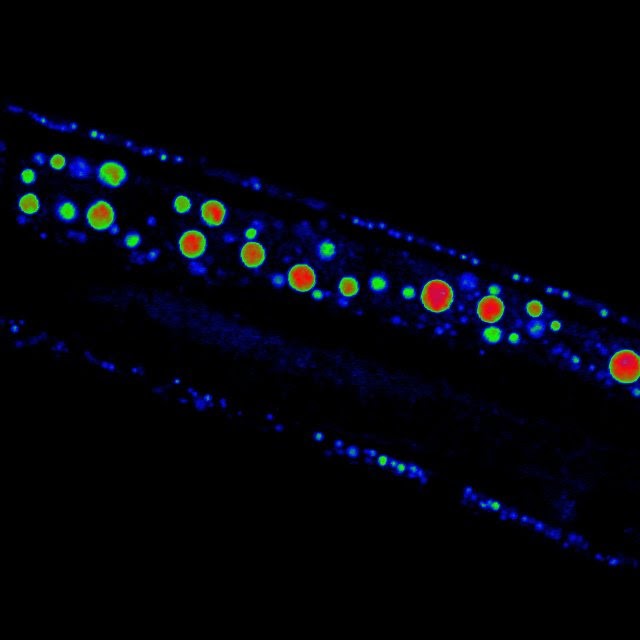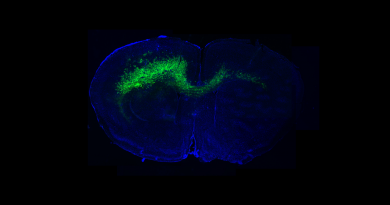The power of the microbiome: A microbe-based treatment reverses social deficits in mouse models of autism
An unconventional bacteria-based approach has successfully reversed deficits in social behaviors associated with autism spectrum disorders (ASD) in genetic, environmental and idiopathic mouse models of the condition.

From the Labs sat with Dr. Mauro Costa-Mattioli, corresponding author of the work, and first author Dr. Martina Sgritta to talk about their discovery that administration of the bacterial species Lactobacillus reuteri to mouse models of ASD leads to specific changes in the brain that result in the rescue of normal social behaviors.
“In 2016, we discovered in mice that the offspring of mothers fed a high-fat diet had social deficits and changes in their gut microbiome were characterized by a reduction in the abundance of the bacterial species L. reuteri. More importantly, restoring L. reuteri levels in the offspring reversed their social deficits,” said Costa-Mattioli, professor and Cullen Foundation Endowed Chair of Neuroscience and director of the Memory and Brain Research Center at Baylor College of Medicine. “This model of ASD represents only one of the numerous heterogeneous underpinnings of the condition. Therefore, we decided to investigate whether our findings would apply to other models with different origins.”

The causes of ASD could be of genetic, environmental, or idiopathic origins, Costa-Mattioli explains, and there are mouse models mimicking each of these condition. So, the researchers investigated whether L. reuteri could also rescue the social deficits in other mouse models that represent different causes of ASD.
Surprisingly, they discovered that, indeed, L. reuteri can trigger the recovery of social behaviors in all of the models they tested, indicating that this microbial-based non-invasive approach could improve social behavior in a wider subset of ASD.
The power of the microbiome
The researchers then applied multiple technical approaches to investigate the mechanism by which L. reuteri rescues the social impairment in ASD mice.
“We discovered that L. reuteri promotes social behavior via the vagus nerve, a nerve that bidirectionally connects the gut and the brain and the oxytocin-dopamine reward system,” said Sgritta, a postdoctoral associate in the Costa-Mattioli lab.

Activation of the vagus nerve is known to stimulate neurons that produce oxytocin — the social hormone — in the brain. During social interaction, oxytocin is released into the ventral tegmental area, a reward center in the brain, where it binds to oxytocin receptors, triggering ‘social reward.’ Sgritta and colleagues tested whether disrupting the vagus connection between the gut and the brain or interfering with oxytocin binding to its receptors would affect L. reuteri’s ability to restore social behaviors in the ASD models.
“Interestingly, we found that when the vagus nerve was severed and the brain-gut connection was disrupted, L. reuteri could no longer restore social behavior in ASD mice,” Sgritta said. “In addition, when we genetically engineered mice to lack oxytocin receptors in reward neurons or blocked the receptors with specific drugs, the treatment with L. reuteri also failed to reverse the social deficits in the ASD mice.”
“We have begun to decipher the precise mechanism by which a microbe in the gut modulates brain function and behavior. This could be key in the development of new and more effective therapies,” Costa-Mattioli said.
Costa-Mattioli believes that these new findings strengthen the rather unconventional idea that it might be possible to treat specific neurological symptoms through the gut microbiome using specific bacterial strains.
Collectively, the findings could radically change the way we think about ASD and its treatment and could have a profound influence in the lives of people with this and related disorders.
To read all the details of this work, visit the journal Neuron.
Other contributors of this work include Sean W. Dooling, Shelly A. Buffington, Eric N. Momin, Michael B. Francis, and Robert A. Britton, all at Baylor College of Medicine.
This work was supported by funding from the National Institutes of Health (R01 MH112356) and Sammons Enterprise.




Do you have a time frame on testing in humans?